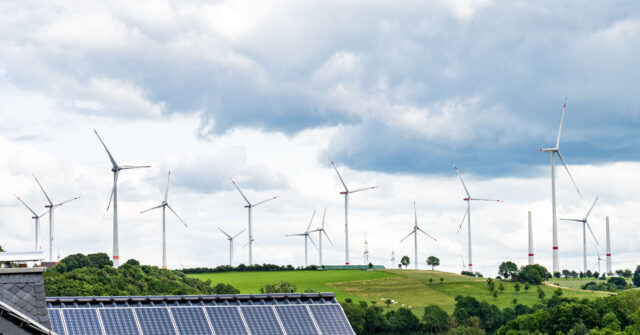The fees to operate Germany’s electricity grid have more than doubled over the past decade, primarily due to Berlin’s green agenda, according to official statistics.
According to figures from the Federal Network Agency, the network fees paid by German consumers and companies rose this year to 33 billion euros ($38/£28.6 bn), compared to 15.9 billion ($18.5/£14 bn) euros in 2015, paper of record Die Welt reported.
The primary reason for the significant rise in costs has been the green energy transition imposed on the country by successive governments, which has compelled grid operators to extensively convert equipment to better handle so-called renewable forms of energy.
This cost has mostly been passed on to consumers and businesses. In 2015, the average German household paid a grid network fee of 6.59 cents per kilowatt hour of electricity. Now, a decade on, the average household pays 11.62 cents for the same amount of energy.
The figures were obtained by the leftist-populist BSW party of Sahra Wagenknecht, who said that the drastic increase in network fees was “unacceptable” and a “failure of energy policy”.
“It is not surprising, but rather self-inflicted, that Germany has some of the highest electricity prices in the world. The federal government must not only deliver the promised relief on the electricity tax but also put an end to the rip-off with grid fees, otherwise electricity prices will not significantly decrease,” she said.
Wagenknecht went on to call for network fees to be abolished and for the state to take over operation of the nation’s electrical grids.
The green agenda embarked upon by Germany has come at a heavy cost, particularly in the wake of Berlin being cut off from Russian oil and gas, which had long been used to prop up the scheme.
However, while the sabotage of the Nord Stream pipelines and the rising costs have been a convenient excuse for the soaring cost of energy in Germany, other factors, such as the move by the previous Social Democrat-led government of Olaf Scholz to fully decommission the country’s nuclear power station fleet, have also plaid a role.
Embarrassingly for green agenda proponents in Berlin, a report last year from Norwegian engineer Jan Emblemsvåg found that if Germany had invested in nuclear power, rather than wind and solar, it would have been cheaper and the country’s carbon emissions would have also been significantly lower.
The Norwegian University of Science and Technology researcher calculated that if Germany had invested in nuclear power at the start of the century, emissions would have declined by around 73 per cent, compared to the mere 25 per cent decline seen under the green energy transition.
Emblemsvåg also estimated that even if Berlin had merely maintained its previous nuclear fleet — rather than shutting the plants down — it would have saved the country around 600 billion euros. If major investments were made into nuclear, he said that the country would have still saved 300 billion euros compared to the investments into supposedly renewable sources of energy.
Follow Kurt Zindulka on X: Follow @KurtZindulka or e-mail to: [email protected]
Read the full article here
